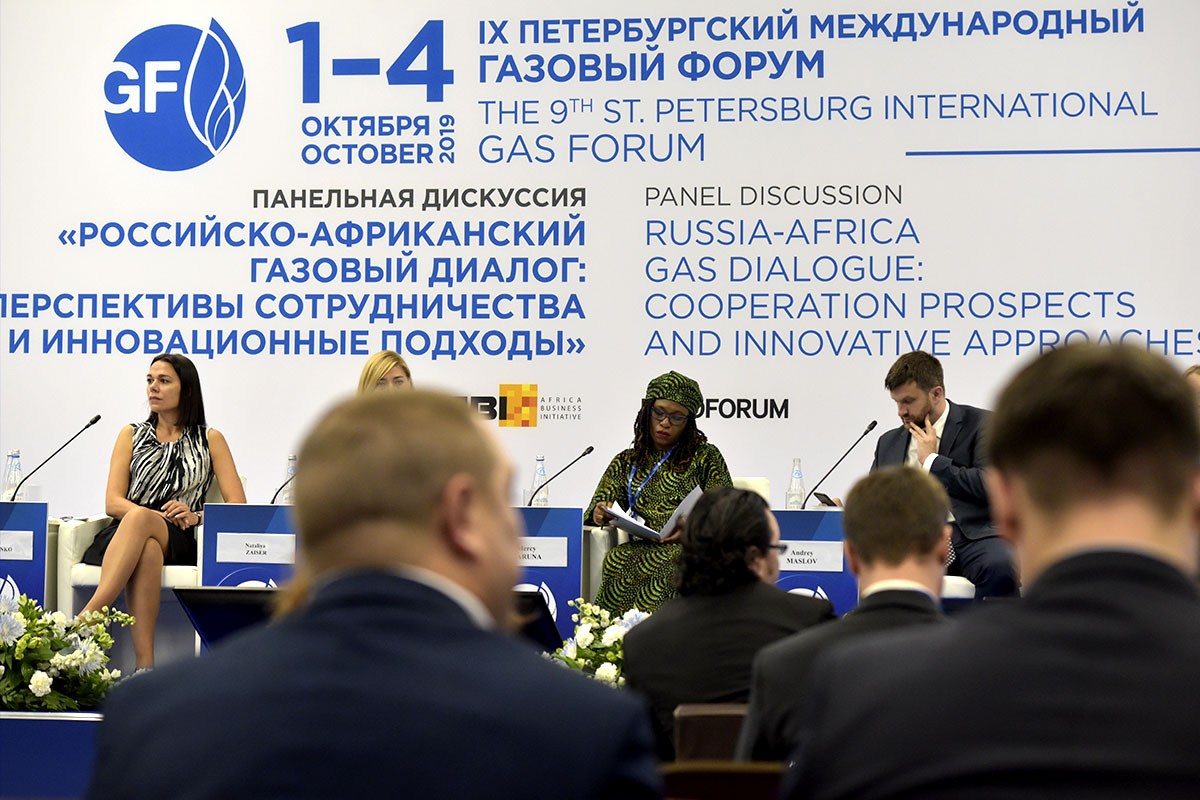African states encourage Russian capital providers to invest into implementation of collaborative oil and gas projects
Africa starts to play an increasing role at the global hydrocarbon market. It opens wide perspectives for collaboration in the oil and gas sphere for both Russian and African corporations. This was the conclusion made by participants of the discussion RUS
Nataliya Zaiser, Chairman of the Board of the African Business Initiative Union, opened the discussion and explained that for African states power economy development is the top priority issue on the agenda. Quite a number of African states has considerable proved natural gas reserves, in particular, Angola, Nigeria, Mozambique, and Equatorial Guinea. However, there are certain challenges that prevent from using these resources for covering basic demands of the local citizens: Africa’s gas transportation system isn’t complete. "Satellite surveillance shows that only 10% of the African continent is covered," said Nataliya Zaiser.
The government of Nigeria, one of the largest natural gas suppliers at the continent, is interested in attraction of foreign investors, including Russian ones, to modernization of the gas pipeline leading to Ghana and Benin, as well as to construction of the Trans-Saharan gas pipeline (intended to connect Nigerian and Algerian gas fields and transport their resources to the Mediterranean Sea). This is what Ms. Mercy Haruna, Minister Counselor at Embassy of Nigeria in Russia, said.
Louisa Savchenko, Senior International Counselor at VDA Group, an international legal company, dwelled in her report upon gas fields development projects currently in action at Mozambique, Angola, and Equatorial Guinea, emphasizing that there are no Russian companies among the consortium investors yet. Alexandra Rotar, representative of the International Gas Association, believes that Russian companies have extensive opportunities at the African gas market in the field of LNG and/or participation in projects for construction of gas liquefying plants. Yuri Moseykin, Dean of the Economics Department at the Peoples’ Friendship University of Russia reminded that investing into education is also relevant. He emphasized that collaborative projects of young scientists, students, and postgraduates from Russia and Africa touch on important subjects and can solve many challenges of the African economics.
Andrey Maslov from Gazprom remarked that Africa starts to play an increasing role at the global hydrocarbon market: in the next 10 years, volumes of gas recovered there will increase 1.5-fold, providing the global market with additional 1 bln m3. At the same time, the local market of the continent isn’t mature. "All the gas recovered in Africa can be easily sold at the local market," Andrey Maslov emphasized. The problem is that laws of many African countries, including Nigeria, support gas export, said the expert. However, over the long run, development of the local market is more beneficial in terms of economics, and Russian companies can help their African partners with that. Gazprom is really interested in development of African gas markets and sees an enormous demand potential as regards to LNG, pipeline gas, engine fuel, and bunker fuel. "We’re happy that Russia-Africa dialogue has finally been commenced, and we’re eager to continue it," Andrey Maslov resumed.

 Calendar
Calendar
 Online application
Online application
 Map
Map
 How to get
How to get



